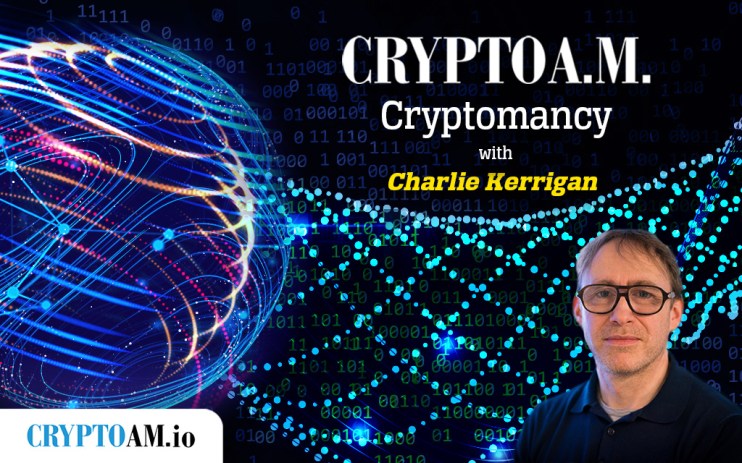Looking at securities fraud in crypto, what makes a lawyer worry, and the famous ‘uncertainty principle’

This month we are going to follow the herd and look at US securities laws. These are the most famous laws in crypto and they apply in England because a US citizen holding a token issued by anyone, including an English company, brings the issuer into US scope.
When Avi Eisenberg took to Twitter last year to say: “I believe all of our actions were legal open market actions, using the protocol as designed, even if the development team did not fully anticipate all the consequences of setting parameters the way they are,” he was saying that he had considered the securities laws that apply in the US.
Eisenberg found a smart trade on Mango Markets, a DeFi trading platform, that involved borrowing under-collateralised loans. By moving the price of the MNGO token, first raising it by bulk buying then borrowing against it, then walking away. Once the token price was raised it was possible to borrow more from the exchange’s treasury than was spent in the initial buying. He netted a gain of $116m.
The SEC has filed charges against him for market manipulation of the platform. They say: “Eisenberg engaged in a manipulative and deceptive scheme to artificially inflate the price of the MNGO token, which was purchased and sold as a crypto asset security, in order to borrow and then withdraw nearly all available assets from Mango Markets, which left the platform at a deficit when the security price returned to its pre-manipulation level”. The SEC charges cover violations of securities, anti-fraud, and market manipulation laws.
Eisenberg’s legal analysis, which he shared via his tweet, was based on the fact that MNGO is an unregulated token. Therefore, rules on market manipulation, which were written to deal with rigging securities markets, didn’t apply.
There were at least two problems sitting in plain sight in this analysis. First, Gary Gensler never stops saying that the only unregulated token is Bitcoin. Second, there are lots of laws, so finding one that doesn’t apply doesn’t mean none of the others don’t either. Laws are not exclusionary in nature – there are no black swans.
One of the reasons that lawyers worry is that there is always the chance that when you analyse the application of a particular law to a particular problem, the process of analysis fits you with blinkers and you just don’t consider other laws that turn out to be the real problem.
Eisenberg’s near namesake Werner Heisenberg was a German particle physicist who said that, when it comes to particles, you can’t measure where they are and where they’re going because no measuring device is so sensitive at that level that it can avoid moving the particle when it touches it. That does make sense: try to measure a soap bubble with a pair of compasses. That is the famous “uncertainty principle”.
The principle led to the equally famous “cat in the box” experiment performed by Erwin Schrodinger, an Austrian particle physicist. (It was a thought experiment: there was no cat in a box.) The cat is alive or dead according to the maths depending on whether a single particle has broken open a vial of poison. But you only find out if you open the box and the position of the particle moves from the realm of probability, to being in one place or another in fact.
Unfortunately, in the same way, you currently only find out what is a security under US law when the SEC opens the box by taking you to court. That is the problem with the SEC’s current approach to crypto. Regulation by enforcement turns uncertainty into a regulatory device. The many new prosecutions recently launched in the US will bring more certainty, just very slowly and at great cost.
Back to Eisenberg. Sadly for him, he left a trail of clues for the SEC. He built a trade that demonstrated that the MNGO token was capable of what all investment bankers would recognise as market manipulation. He told everyone all about it. So, when the SEC says “what characteristics does this token have?” and everyone says: “you can trade it on an exchange, move the price, borrow against it, watch the price fall as you remove your support” and the SEC says: “like in securities lending before we criminalised market manipulation?” and everyone says: “yes, that’s right”, the SEC has a hard time not thinking that they’ve heard this song before.
The Securities Act 1933 is a good piece of law. You should assume that any law that has been on the books for 90-years makes a good fist of what it’s supposed to do. And even if you can convince a judge that a token is unregulated, as the SEC go on to say in their complaint in this case, regardless of securities laws fraud is still fraud.
In a December 26 tweet Eisenberg referred to “…a post suggesting it’s not a law of the universe that computer coin numba go up forever…”. Ironically, it is a law of the Universe that the SEC are using to pursue him.
Remember – law isn’t code, it’s manifestation of social policy. Contract law is a bit like code. But the law libraries are full of books that are nothing to do with contract.
Charles Kerrigan is a crypto and digital assets partner with law firm CMS